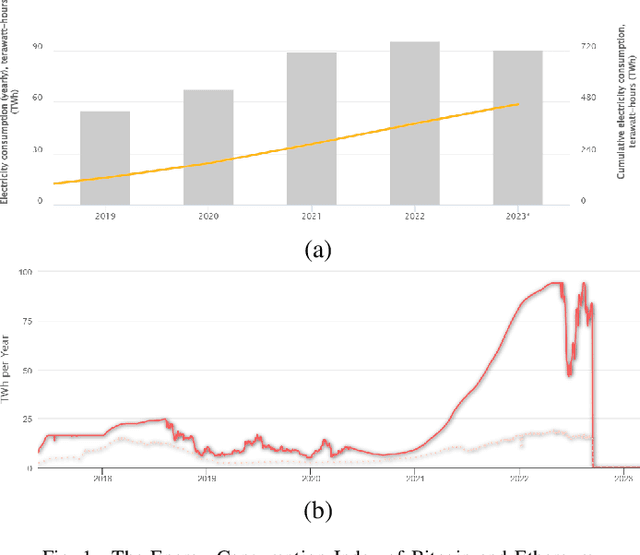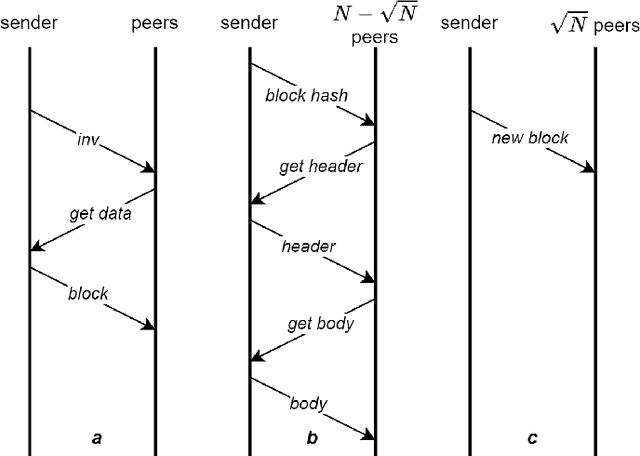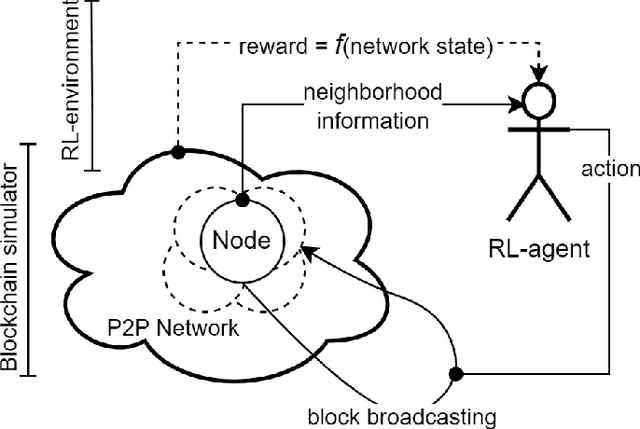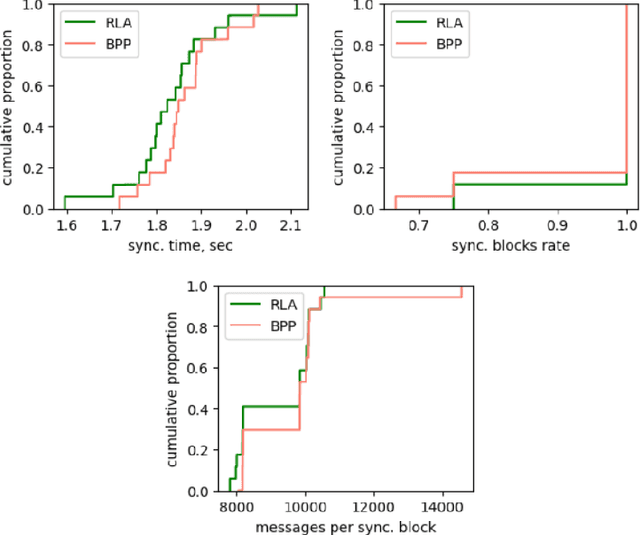Sustainable broadcasting in Blockchain Network with Reinforcement Learning
Paper and Code
Jul 22, 2024



Recent estimates put the carbon footprint of Bitcoin and Ethereum at an average of 64 and 26 million tonnes of CO2 per year, respectively. To address this growing problem, several possible approaches have been proposed in the literature: creating alternative blockchain consensus mechanisms, applying redundancy reduction techniques, utilizing renewable energy sources, and employing energy-efficient devices, etc. In this paper, we follow the second avenue and propose an efficient approach based on reinforcement learning that improves the block broadcasting scheme in blockchain networks. The analysis and experimental results confirmed that the proposed improvement of the block propagation scheme could cleverly handle network dynamics and achieve better results than the default approach. Additionally, our technical integration of the simulator and developed RL environment can be used as a complete solution for further study of new schemes and protocols that use RL or other ML techniques.
 Add to Chrome
Add to Chrome Add to Firefox
Add to Firefox Add to Edge
Add to Edge